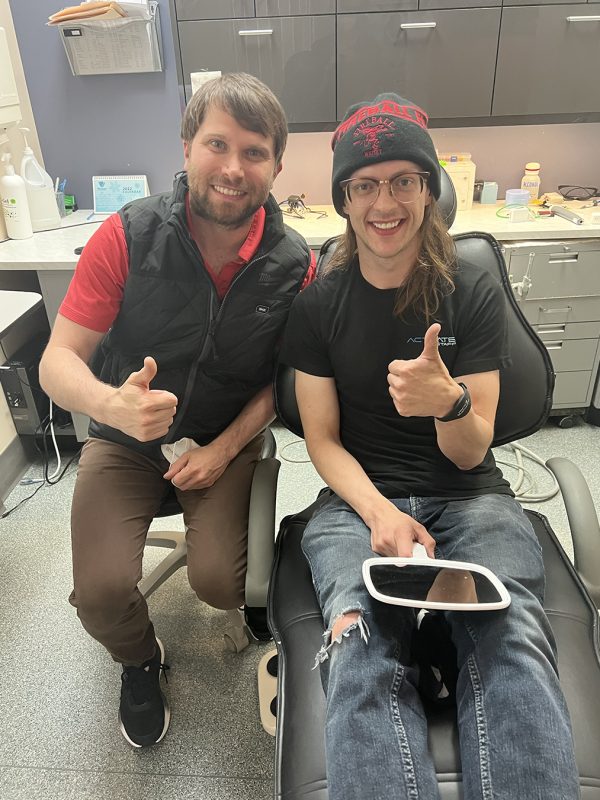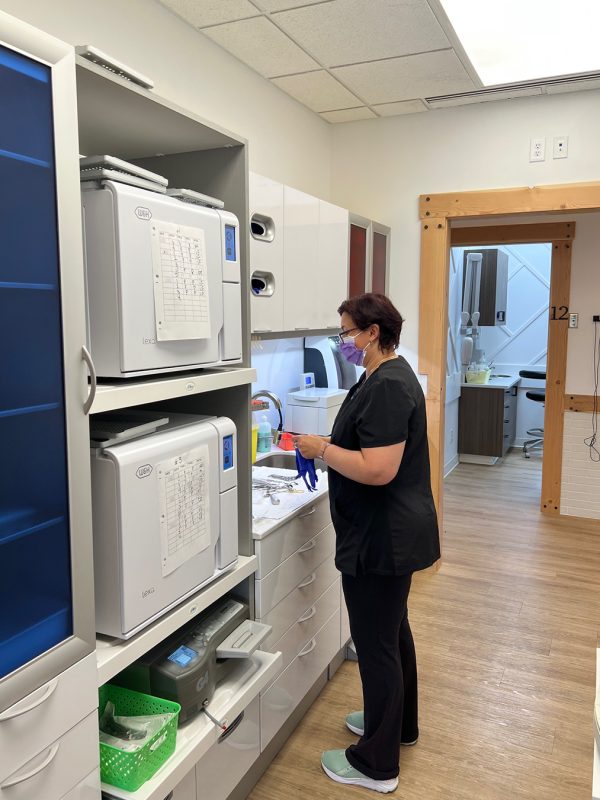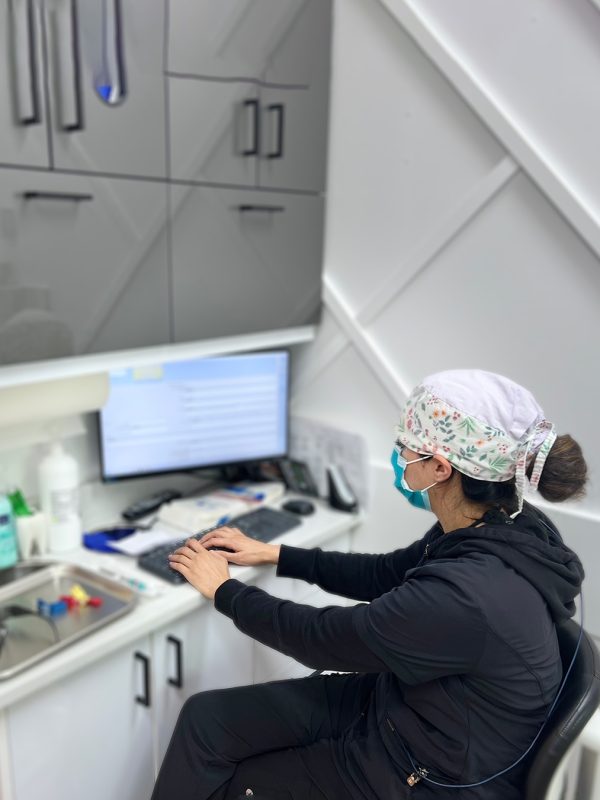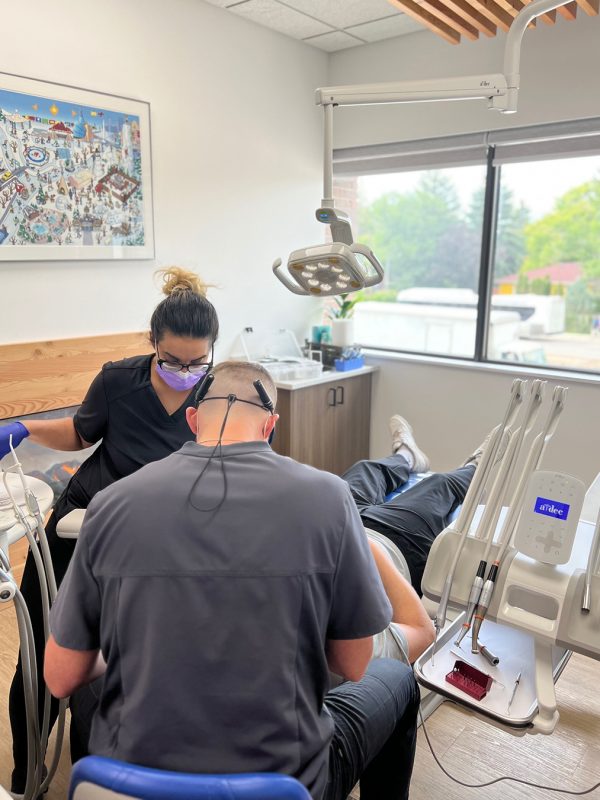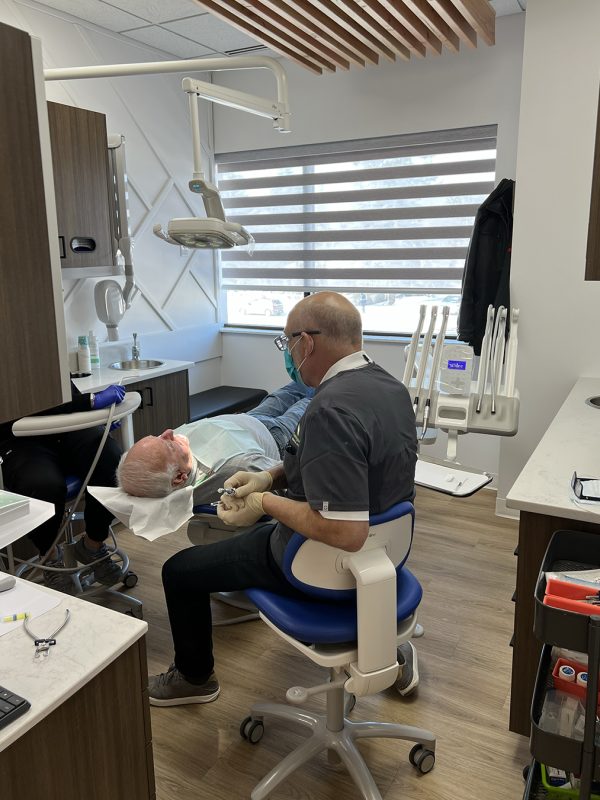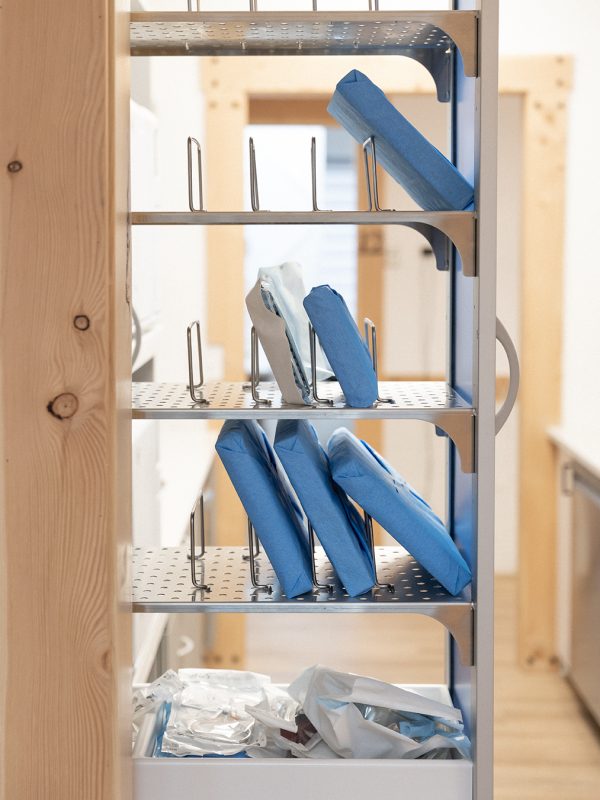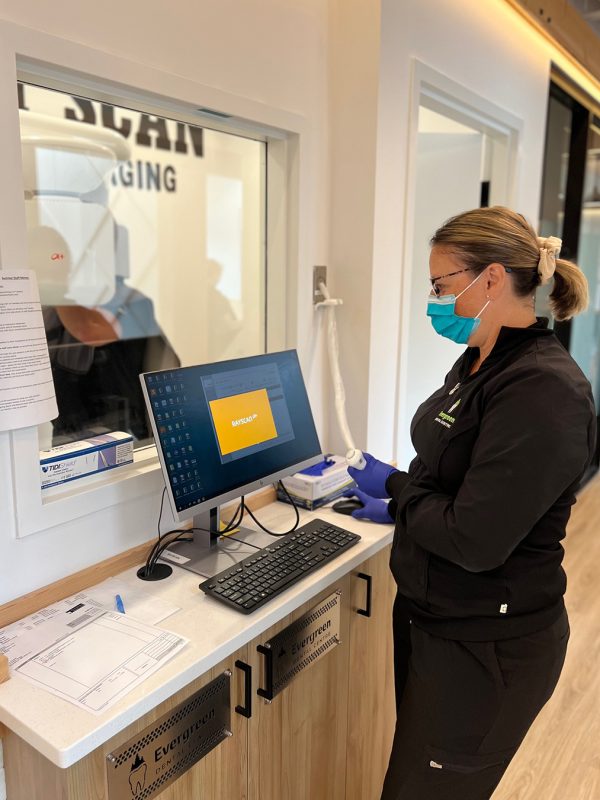“How long do dentures last?” This question might pop-up in your mind when you are looking for a reliable solution for replacing missing teeth, restoring your ability to chew, speak, and smile with confidence.
Understanding the typical lifespan of dentures and the factors that influence it can help you maximize their effectiveness and know when it’s time for a replacement. This article will explore the different types of dentures, the average lifespan you can expect, and the key signs that might indicate your dentures need to be replaced.
Table of Contents:
- Use and Benefits of Dentures
- Types of Dentures
- Factors Affecting Denture Lifespan
- Average Lifespan of Dentures
- Signs Your Dentures Need Replacement
- Conclusion
Use and Benefits of Dentures
First, let’s address the basics: dentures are removable dental appliances that replace missing teeth and surrounding tissues. They are a common solution for individuals who have lost all or a significant number of their teeth due to decay, gum disease, or injury. According to a journal, dentures restore not only the ability to chew food effectively but also improve speech, social interactions, and facial aesthetics.
Types of Dentures
Dentures come in a variety of forms to address different needs. Understanding the different types can help you discuss the best option with your dentist. Here’s a breakdown of some common denture types:
- Full Dentures: These dentures replace all of your teeth in either your upper or lower jaw, or both. They are made of acrylic resin and typically rest on your gums.
- Partial Dentures: These dentures are used when you still have some natural teeth remaining. They fill in the gaps created by missing teeth and clasp onto your existing teeth for support. Partials can be made from metal and plastic or a flexible material.
- Implant-Supported Dentures: These dentures offer increased stability and functionality compared to traditional dentures. They use dental implants surgically placed in your jawbone to secure the denture. This can be done with either a bar attachment or individual implants with locator caps.
While both traditional full dentures and partials require a healing period after tooth extraction, there are two options that can provide teeth immediately:
- Immediate Dentures: These dentures are fabricated in advance and placed in your mouth right after your teeth are removed. They offer a cosmetic benefit during healing but may require adjustments as your gums heal and shrink.
- Overdentures: These dentures can be full or partial, but they rely on remaining healthy teeth or dental implants for support. Unlike immediate dentures, overdentures are placed after the extraction sites have healed. This allows for a more secure fit and better long-term stability.
Factors Affecting Denture Lifespan
Your dentures can last for years with proper care. Here’s what matters most:
- Quality Matters: High-quality materials and skilled craftsmanship ensure a comfortable, durable fit that minimizes repairs.
- Daily Care is Key: Regular cleaning with a soft brush and soaking in solution keeps dentures fresh and prevents damage.
- Use Wisely: Consider a spare set and remove dentures at night to extend their lifespan.
- Diet Matters: Avoid sticky and hard foods to prevent dislodging or cracking. A balanced diet promotes healthy gums for a better fit.
- See Your Dentist: Regular check-ups ensure proper fit, address minor issues, and maximize denture longevity.
- Handle with Care: Store dentures in solution and handle them over a soft surface to prevent breakage.
- Health Matters: Communicate any health changes to your dentist, as they can impact denture fit and comfort.
Average Lifespan of Dentures
Dentures can last anywhere from 5 to 10 years, with some lasting even longer. However, this lifespan varies depending on several factors, including the type of denture (full or partial), the materials used in their construction, and your individual care practices. Generally, full dentures may require replacement after 5 to 7 years, while partial dentures can potentially last up to 10 years. Taking good care of your dentures can significantly extend their lifespan.
Signs Your Dentures Need Replacement
It’s important to be aware of the signs that your dentures might need replacement to maintain your oral health and comfort. Here are some key indicators:
- Discomfort and Soreness: Persistent discomfort or soreness in your gums or mouth suggests your dentures no longer fit properly. This can be caused by changes in your jawbone and gums over time.
- Chewing and Speaking Difficulties: If you have trouble chewing, frequently bite your tongue or cheek, or experience slurred speech, your dentures may need adjustment or replacement.
- Visible Wear and Tear: Cracks, chips, or worn-down teeth compromise both the function and appearance of your dentures. If you notice these signs, consult your dentist.
- Loose Fit: Dentures that slip or require frequent use of adhesives may need relining or replacement due to changes in your mouth shape.
- Bad Odors and Stains: Persistent bad breath or stains that are difficult to remove can indicate a buildup of bacteria or degraded denture material. If cleaning doesn’t help, consider new dentures.
- Frequent Adjustments and Relines: Regular adjustments and relines suggest your dentures are nearing their lifespan. New dentures might be a better long-term solution.
- Changes in Facial Structure: Dentures help maintain facial structure. Sagging cheeks or a sunken appearance could be a sign of ill-fitting dentures. New dentures can provide better support.
- Oral Health Issues: Recurring infections, ulcers, or gum inflammation can be caused by poorly fitting dentures that create friction and pressure points. New dentures may resolve these issues.
- Difficulty with Adhesives: If denture adhesives become less effective in keeping your dentures secure, it could indicate a loss of proper fit. Over reliance on adhesives might mask underlying problems requiring replacement.
Conclusion
Understanding denture lifespan and the signs that they might need replacement empowers you to maintain optimal oral health and a confident smile. If you’re considering dentures or suspect your current ones might need attention, schedule a consultation so we can assess your needs, discuss the different denture options available, and recommend the best course of action for a lasting, comfortable solution. Learn more about our denture services.



